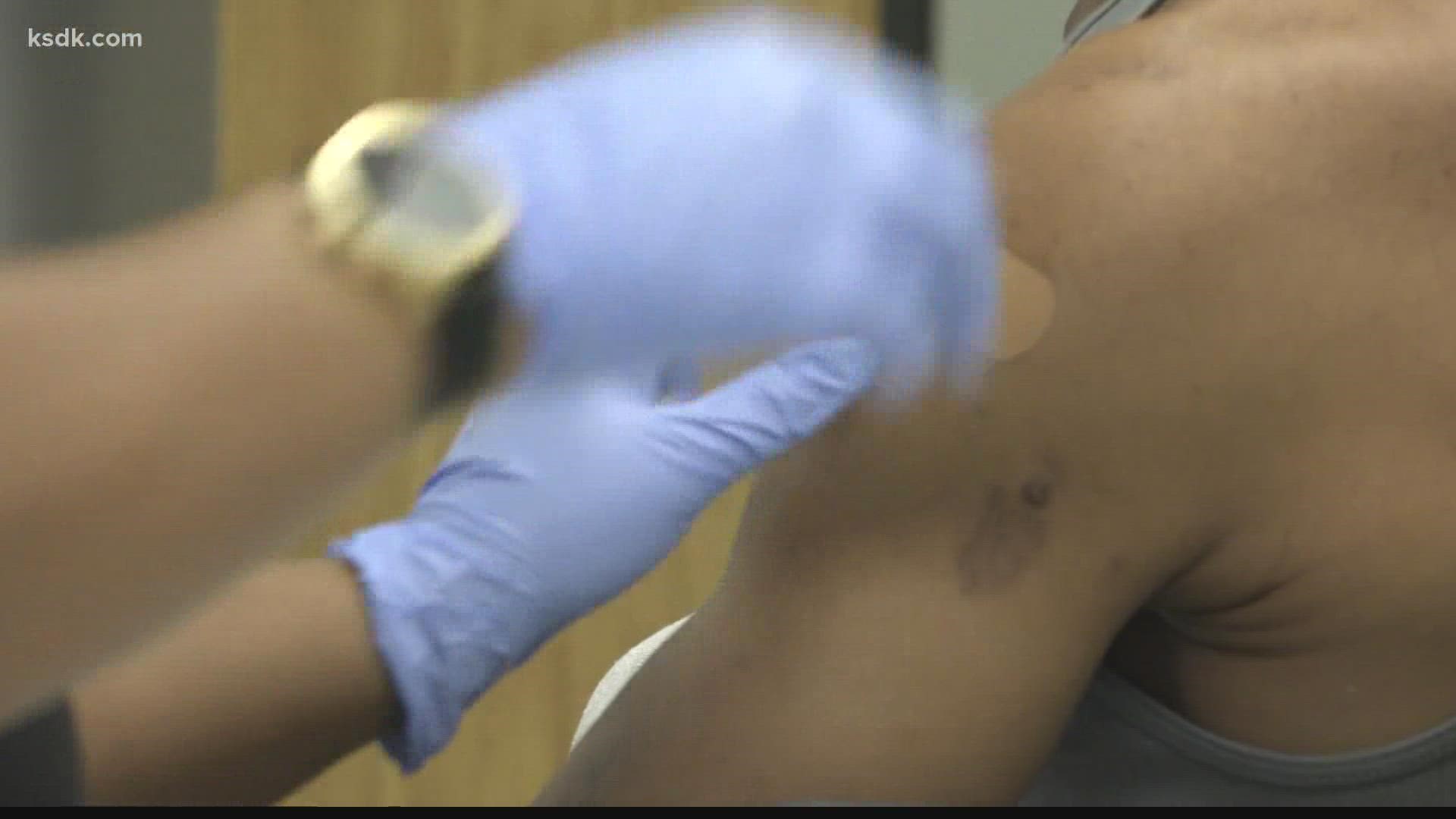ST. LOUIS — “We still have a lot of work to do,” said Dr. Kendra Holmes, standing outside the busy vaccine clinic at Affinia Healthcare. It was mid-December, so vaccines had been widely available for most of the population for months, but the clinic sees a mix of people receiving their first and second doses of COVID-19 shots along with those there for boosters.
“This is the best tool that we have to prevent deaths,” she said.
The medical center is just north of downtown St. Louis and has played a key role in vaccine efforts around the city.
“We're talking about underserved communities. There is a great deal of distrust in the medical system and a lot of miscommunication,” she said.
Dr. Holmes admitted that confusing messaging, especially as it relates to the Johnson & Johnson vaccine, can make clearer communication difficult.
Last spring, administration of the vaccine was put on hold due to concerns over a rare blood clot side effect. Months later, in December 2021, the CDC publicly recommended people get an mRNA shot — Pfizer or Moderna — if one is available, instead of the Johnson & Johnson, due to those blood clot concerns as well as questions over the shot's resilience against variants.
“I think that the communication for the Johnson & Johnson blood clots left a lot to be desired and actually complicated and made people even more hesitant,” said Dr. Holmes.
The CDC also reviewed data that showed the Johnson & Johnson shot still prevents far more hospitalizations and deaths due to COVID-19 than the blood-clot condition can cause, but according to NBC News, data also showed J&J prevents fewer hospitalizations and deaths than two doses of an mRNA vaccine.
"The safety and well-being of those who use the Johnson & Johnson vaccine continues to be our No. 1 priority,” said Dr. Mathai Mammen, Global Head of research and development, in a statement following the CDC's recommendation of Pfizer and Moderna over their shots. “We appreciate [the] discussion and look forward to working with the CDC on next steps. In addition, we strongly support education and generating awareness of rare events, such as Thrombosis with Thrombocytopenia Syndrome (TTS) and how to effectively manage it.”
The vaccine initially showed much promise as a single-dose option with easier storage requirements. Health experts touted it as a great option for clinics in remote areas or for people with limited time and transportation. However, in October, it was announced that the shot is more effective after a second dose, and anyone who received the J&J shot was encouraged to get a second one after at least two months. NBC News reports the vast majority of initial J&J recipients have opted for Pfizer or Moderna boosters.
Despite its push as an easy access option, Dr. Holmes said making J&J the only option would have been bad for public health.
“We knew that would not work in this community to just provide what at the time was viewed as a lower quality product, and that is absolutely something that we want to avoid working with underserved communities,” she said.
The Johnson & Johnson shot was granted an emergency use authorization after proving high efficacy against severe COVID-19 — but those rates were about 20% lower than protection reported by Pfizer and Moderna’s vaccines.
More than 16 million people in the U.S. have had single shots of the Johnson & Johnson vaccine, according to the CDC, and more than 489 million doses of the Pfizer and Moderna vaccines have been administered.
“As we learn more and more information, our goal is to make sure that the community is aware of the risks and benefits associated with a particular vaccine product,” said Dr. Fred Echols, the former acting director of the St. Louis Health Department.
He said public health best practices involve educating people on all of their choices — and what the scientific process entails.
“So the truth of the matter is, we know that SARS-CoV-2 infection can lead to death,” he said. “The information collected shows that the COVID-19 vaccines do provide protection, reducing the likelihood that individuals will develop severe complications and be hospitalized or die.
“But we do have to make sure we're looking out for any other complications that may arise due to these pharmaceutical interventions, and that's what this is all about,” he added.
"Given its strong durability, the Johnson & Johnson COVID-19 vaccine remains an important choice in the U.S. for people who can’t or won’t return for multiple vaccinations or who would remain unvaccinated without an alternative to the mRNA vaccines," reads a statement from the company. The vaccine website outlines information to know to help determine who might face higher risks from the vaccine.
Johnson & Johnson shots are still available and going into arms — and Dr. Holmes said they still might be the best option for certain people to get extra protection from COVID-19.
“Ultimately, it's about education, informing the public and having the public make an informed decision,” she said.

